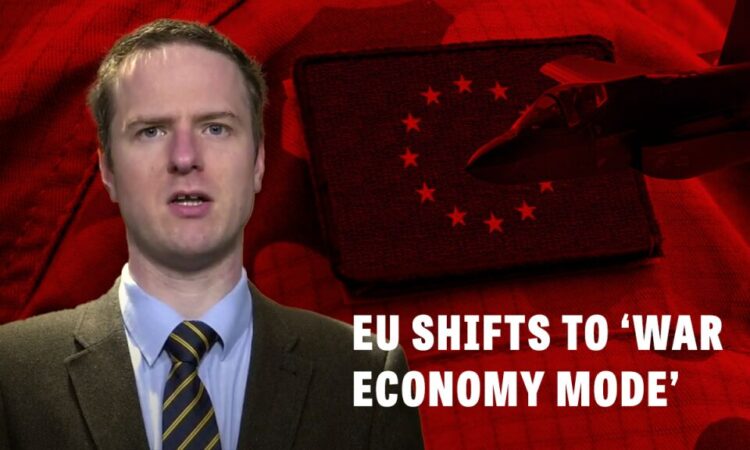
transcript
The European Union must shift into “war economy mode.” That’s why European Industry Commissioner Thierry Breton unveiled new proposals to unify Europe’s defense industry on March 5.
Right now the EU has 19 different types of main battle tanks and 28 different types of howitzers. That’s a lot of wasted effort, but fixing it is hard. Each nation wants its own companies to make its own weapons. The arms industry is specifically excluded from EU treaties on the single market. The new proposals are some of the first to challenge that and to get the EU involved in arms production.
Breton wants the EU to stop buying American weapons. About 80 percent of the EU’s defense spending goes to companies outside the EU, mostly to the United States. European countries themselves are too small to produce many of these big-budget weapon systems like the F-35 fighter jet. Instead of buying American, Breton wants EU countries to work together more to produce their own big-budget rivals. By 2030, Breton wants half of defense procurement to happen within the EU.
He also wants EU countries to coordinate their arms purchases, with 40 percent of all weapons purchases done collectively by 2030. To help, the EU would spend €1.5 billion (us$1.6 billion) over three years to subsidize EU military production. This is small beer in defense terms, but it’s something.
In many ways, these steps are small and underwhelming—and probably insufficient to change the way the EU produces and buys its weapons. But they could be an important first step toward an EU that gets more involved in military matters.
Starting in 1945 Herbert W. Armstrong warned that a “European union”—he used those exact words—would arise in Europe, start as an economic union, and then become a political and military union.
That’s exactly what we’re seeing play out. But he also warned it would not come easily—that they would fail to bring about this military union by themselves. It would only be possible through the help of the Catholic Church.
Watch for Europe to keep moving in this direction, but don’t expect it to get there on its own. To understand more of this forecast, check out the Trends section on our website, and read “Why the Trumpet Watches Europe’s Push Toward a Unified Military.”






